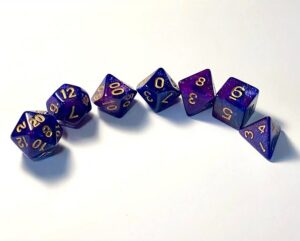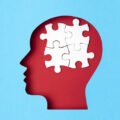A newly published observational study by University College Cork (UCC) found that people who play the well-known role-playing game Dungeons and Dragons (often shortened to D&D) experience several processes that support their mental health.
The researchers behind this unique work say their analysis revealed five key themes supporting positive mental health through their interviews with study subjects: escapism, exploration of self, creative expression, social support, and routine. Among those areas, the researchers highlighted three themes whose combination appeared to be unique to role-playing games like D&D.
“Escapism, creative expression, and social support were identified among the key aspects uniquely linked to the immersive and imaginative nature of D&D gameplay,” the researchers explain.
While role-playing games are sometimes used as therapeutic tools to support mental health, the researchers believe their study could encourage mental health professionals to expand their usage, providing the therapeutic value of games like D&D to a broader population.
Dungeons and Dragons Celebrates Five Decades of Popularity
In the press release announcing the study’s results, published in the International Journal of Role-Playing, the College Cork researchers point out that role-playing games experienced a surge in popularity during the COVID-19 pandemic. This increase offered the team a unique opportunity to study what benefits, if any, people playing this category of game may have experienced during such a high-stress time.
Often touted as the most popular role-playing game in the world, D&D first rose to popularity in the 1970s and 1980s, before computer games and the internet were available. In recent years, social media and the ability to gather virtually have allowed the game to expand globally, including a new audience that wasn’t even born when the game was first invented in 1974.
The game has also benefited from the popularity of fantasy characters and environments. This includes epic blockbusters like the Academy Award-winning Lord of the Rings trilogy, the Harry Potter books and movie series, and the success of books adapted to TV like the Game of Thrones Saga and its new spin-off series House of Dragons.
To actually set up a game, players create individual characters with unique backgrounds, character attributes, abilities, and weaknesses. The players also select from various human characters, like Knights, Monks, and Wizards. However, they can also select from creatures like Elves, Dragons, Orcs, Dwarves, and other non-human beings that regularly populate fictional fantasy worlds.


To play the game, these newly created characters are joined by a Dungeon Master, or DM, who leads them through their customized adventure, sometimes called a “campaign.” Moves are dictated by the rolling of customized, multi-sided dice, adding a real-world element of chance to the adventure.
While some “shorter” campaigns can stretch over just a few hours, many people who play D&D have reported undertaking epic adventures that can last weeks, months, or even years before reaching a definitive conclusion.
Sense of Control and Community Key to D&D’s Therapeutic Value
To conduct their analysis, the team enlisted 10 volunteers who regularly played D&D during the pandemic. According to the study abstract, the team employed a series of semi-structured interviews and a “reflexive thematic analysis” with each individual volunteer. This data accumulation allowed the team to “understand better how playing D&D interacted with players’ well-being psychologically and socially,” as well as explore numerous other factors “that may prove challenging or problematic in the therapeutic context.”
Among the first components the team’s research discovered that seemed to support the mental health of its players was the fact that D&D is an inherently social activity. When participating in a group activity like this, each individual player typically benefits greatly from the communication and collaboration of multiple players. For longer campaigns, playing D&D can also involve scheduling and meeting with numerous collaborators at many different times.
“Playing Dungeons and Dragons is an inherently social activity,” the researchers explain, “requiring frequent group meetings for a period of months or years and requiring creativity and collaboration from players.”
According to Orla Walsh, study lead and PhD researcher at UCC School of Applied Psychology, this collaborative aspect of D&D on an inherently creative effort tends to offer significant support to the mental health of its players.
“Whilst many hobbies may allow for creative expression, D&D uniquely allows players to collaboratively build and inhabit worlds of their creation,” Walsh explained.
Along with the collaborative aspects of group play, the researchers also noted two unique features of playing D&D that were well-known to support positive mental health: a sense of escapism and a feeling of control. According to Walsh, the ability to escape the stresses of everyday life while also experiencing a feeling of control during something like COVID-19 was likely critical to maintaining the player’s mental health, while a sense of control is a well-known component supporting positive mental health.
“Our research found that players discussed the benefits of escapism that accompanied playing D&D and the positive impact that this had on their mental health,” the researcher explained. “Players reported feeling a strong sense of control in-game during times when they felt they did not have control outside of the game.”
Finally, the researchers found that the inherent collaboration and imaginative world-building associated with playing D&D offered emotional and social connections that are increasingly absent in a post-COVID-19 world. These features are regularly observed in other activities that support mental health. However, when experienced in a role-playing game environment, they can help foster a sense of camaraderie that is unique from similar experiences.
“The social support nurtured by playing D&D gives players emotional and social connection and offers them a space in which they can express themselves freely,” said Walsh. “While social support is a recognized benefit of many group activities, the collaborative storytelling aspect of D&D fosters a unique sense of camaraderie and shared experience among players.”
Role-playing games Could Become A Valuable Tool for Improving Mental Health
When discussing the team’s findings, Dr Conor Linehan from the UCC School of Applied Psychology said their work found that D&D can bring “a myriad of benefits” for its players, particularly regarding positive mental health. The researcher also noted that while some clinicians and community groups have begun to employ D&D and other role-playing games therapeutically, that phenomenon is currently mainly limited to the United States.
“Our study suggests that a wider rolling out of such therapeutic role-playing groups may benefit Ireland and across the globe, offering the great potential to support skills development, emotional exploration, problem-solving and foster meaningful social connection,” Linehan explained.
Ultimately, the team hopes that their work can inspire other researchers to explore the role of games like D&D and any additional benefits they may offer, as well as identify new ways to utilize the therapeutic value of role-playing games.
“The findings of this study have the potential to enhance our understanding of why D&D has proven successful in therapeutic settings,” Linehan said. “It provides a foundation for understanding how the game might be used as a tool in the future.”
Christopher Plain is a Science Fiction and Fantasy novelist and Head Science Writer at The Debrief. Follow and connect with him on X, learn about his books at plainfiction.com, or email him directly at christopher@thedebrief.org.

